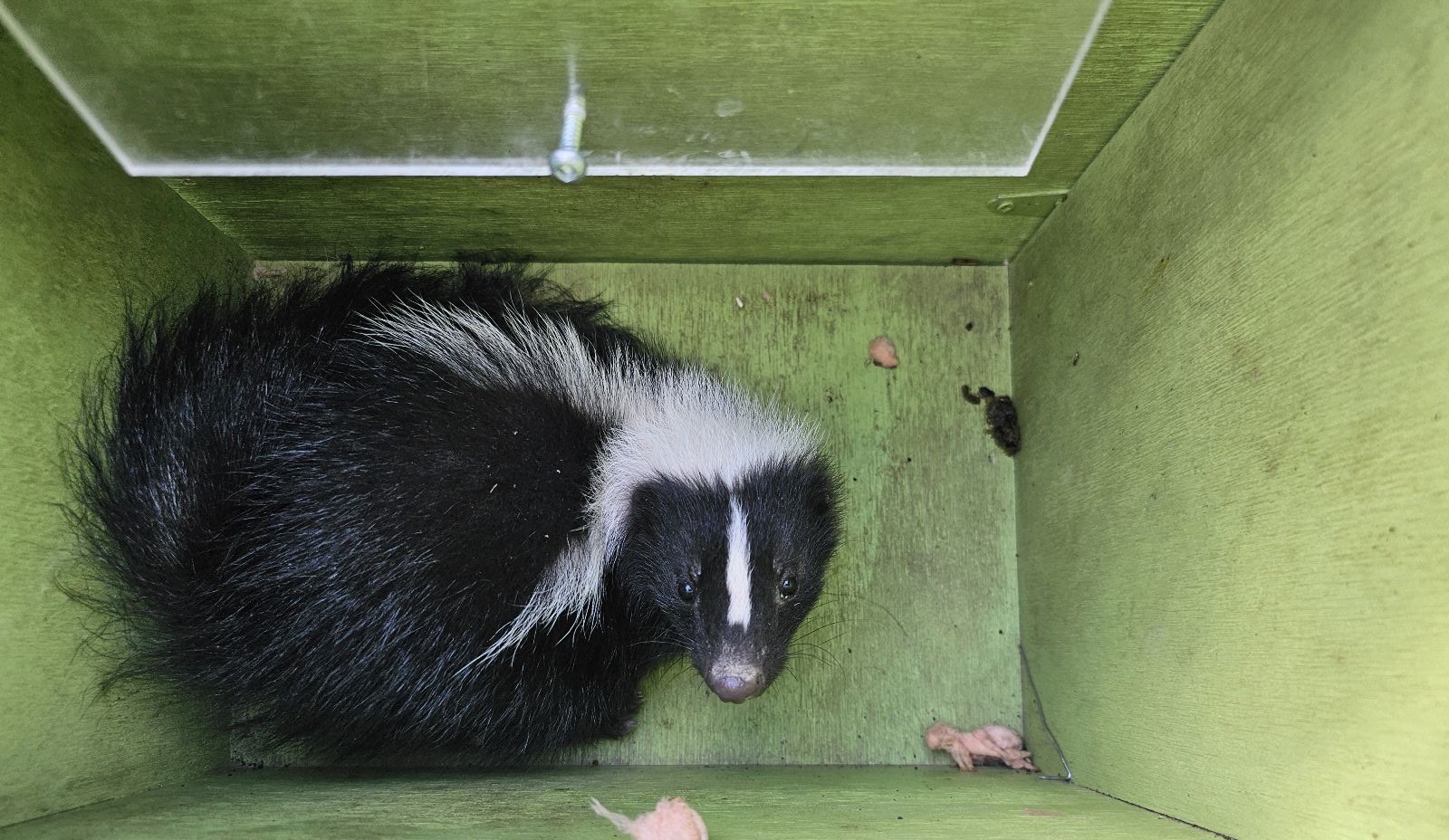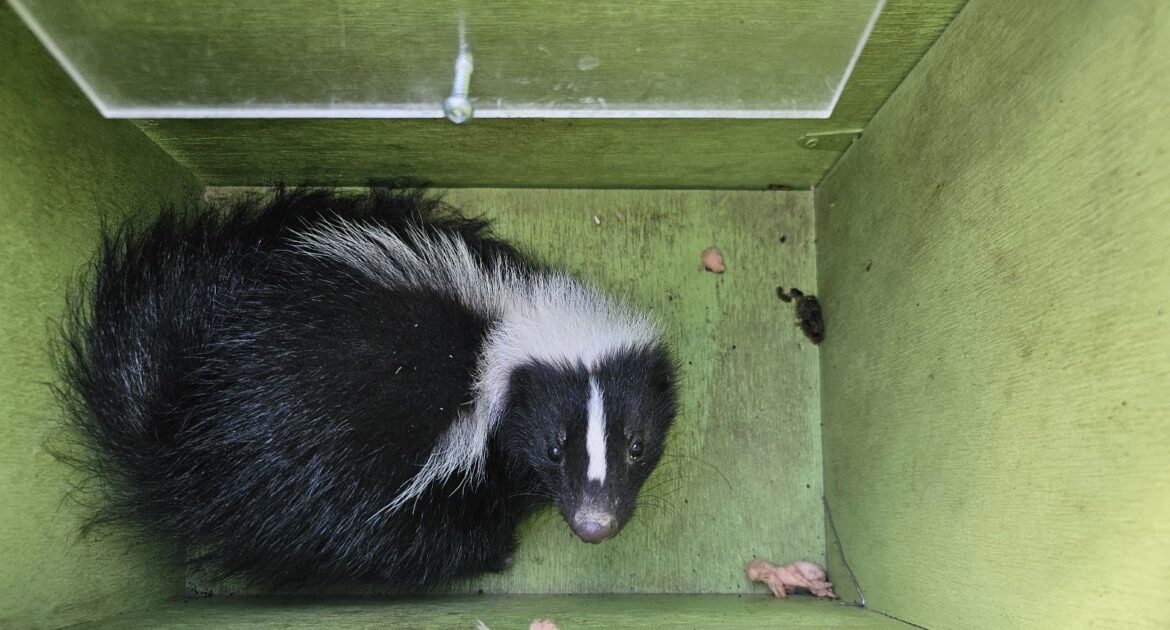Ever found yourself wondering why skunks seem so drawn to your yard? You’re not alone. These striped animals have a knack for turning up where they’re least wanted—under porches, near gardens, or along fence lines. It’s not random, though. Skunks are practical creatures looking for a few basic things. If your property accidentally provides what they need, they’ll make themselves right at home.
Understanding what attracts skunks to your yard is the first step to keeping them away—and avoiding the frustration of needing wildlife removal services later. Skunks are usually on the hunt for food, water, and shelter. These are pretty simple needs, but if your yard or home offers all three, you’re practically rolling out a welcome mat for them.
Below, we’ll explore these specific reasons and what you can do to address them. By staying informed, you can safeguard your space and prevent issues like needing skunk removal in Mississauga.
Accessible Food Sources
Food is often the number one reason skunks enter a yard. These animals are opportunistic eaters, which means they aren’t picky and will eat whatever is easiest to find. Unfortunately, our yards often provide an endless buffet without us realizing it.
Pet Food Left Outside
Leaving food out for dogs or cats might seem harmless, but it’s an open invitation for wilderness neighbours. Skunks, seeing unattended bowls, quickly help themselves to a meal. Make it a habit to bring pet food inside after feeding your animals.
Garbage and Compost Bins
Skunks are scavengers, and nothing screams “easy meal” like an unsecured trash can or an open compost pile. Garbage filled with food scraps or poorly sealed compost attracts them in no time. To avoid this, always invest in bin lids that lock and ensure compost areas are covered.
Garden Produce and Fruit Trees
Your yard might have excellent snacks without you even noticing. Fallen fruits from trees or unpicked vegetables in a garden bed are irresistible to skunks. Cleaning up this produce regularly is a small but effective step to reducing their interest in sticking around.
Water Availability
After food, the next big draw for skunks is water. Especially during dry seasons, these creatures will actively look for any source to quench their thirst.
Ponds, birdbaths, or even leaky hoses can become the perfect drinking spot for skunks. While it’s nice to provide water for local birds or pollinators, it’s essential to keep these features maintained and consider minimizing pooling water where possible.
If your yard has poor drainage and water regularly pools after rainfall, that’s another attraction for skunks. Fixing this might mean enhancing your drainage system or levelling parts of your outdoor space to avoid standing water for too long.
Sheltered Spaces for Nesting
Once skunks find both food and water in your yard, they’ll naturally look for a safe spot to sleep or raise their young. This shelter is crucial for them, and residential properties often provide perfect spots for nesting.
Spaces beneath porches or decks are prime real estate for skunks. These areas are dark, safe, and out of sight, making them ideal for families of skunks to set up their dens. To discourage them, seal gaps around these areas with sturdy materials that prevent access.
Much like under porches, crawl spaces or gaps under sheds are also common nesting areas. Keeping these spaces secure by repairing holes or installing barriers goes a long way in discouraging animals from setting up camp.
Lawn and Soil Conditions
Surprisingly, the state of your lawn or garden might also play a role in attracting these animals. Skunks dig as part of their search for food, and your soil could be just what they need to make their hunt easier.
Skunks feed heavily on grubs and insects, often digging small holes in lawns to find them. If you notice cone-shaped digs in your yard, it’s a sign skunks are busy hunting for their meals. Anti-grub lawn treatments can help discourage their digging behaviour.
Gardens or newly tilled soil provide an easy digging ground for skunks. While you don’t have to stop gardening, keeping soil compacted or well-organized can make it less appealing for digging purposes.
Clutter and Debris
A cluttered yard might seem harmless, but to an animal, it appears full of potential hiding spots. Skunks, in particular, appreciate environments where they can feel hidden and secure.
Stacks of firewood, piles of leaves, or brush left after yard work can give skunks the cover they’re looking for. Keeping your yard clear of these features or storing wood off the ground reduces their access to shelter. Overgrown plants and cluttered areas naturally provide safety for skunks and other animals to use as hiding spots. A tidy yard does more than look good—it’s also less attractive to unwanted visitors.
Lack of Preventative Measures
Sometimes, it’s a lack of effort to secure your property that makes it welcoming to skunks. Without specific deterrents, these animals can enter almost anywhere.
Homes without proper fencing make it simple for wildlife to wander in. While not all fences will keep determined skunks out, sturdy and well-maintained barriers are much better than nothing. Gaps in your home’s foundation or openings near sheds might not seem like a big deal, but they’re essentially open doors to animals. Regularly inspect your property for these vulnerabilities and take the time to seal them with durable materials.
How to Prevent Future Skunk Problems
Wondering how to get rid of a skunk under your porch? The best way to deal with skunks is to take proactive measures before they become permanent guests on your property. By addressing what attracts them—like food, water, and shelter—you can send a clear signal that your yard isn’t the right place for them.
Quick Overview of Attraction Points:
- Accessible food sources like pet food, trash, or fallen garden produce
- Water availability in ponds, birdbaths, or poorly drained areas
- Sheltered spaces under porches, decks, sheds, or cluttered yards
- Lawn and soil conditions that make it easy to dig for bugs
- Lack of fencing or open gaps that allow easy access
If, however, these skunks have already settled in (like under your porch), it’s important to deal with the situation safely. Professional help is often needed to manage problems like a skunk under your porch. Skedaddle Humane Wildlife Control in Mississauga is here to help. We use effective, humane methods to remove animals without harm, including one-way doors that safely guide them out while ensuring they can’t return.
Final Thoughts
Skunks are drawn to residential yards for simple reasons—food, water, and shelter. Knowing what makes your home appealing to them is key to prevention. Keep your property tidy, secure open spaces, and remove any easy food or water access. These steps can save you a lot of trouble in the future.
But if you’re already dealing with a stressful situation, don’t wait to reach out. At Skedaddle Humane Wildlife Control in Mississauga, we specialize in humane solutions to help you get rid of skunk problems safely, whether it’s evicting a skunk under your porch or taking steps to prevent future visits. Contact us today for expert help. Together, we’ll ensure your home stays safe and skunk-free!




